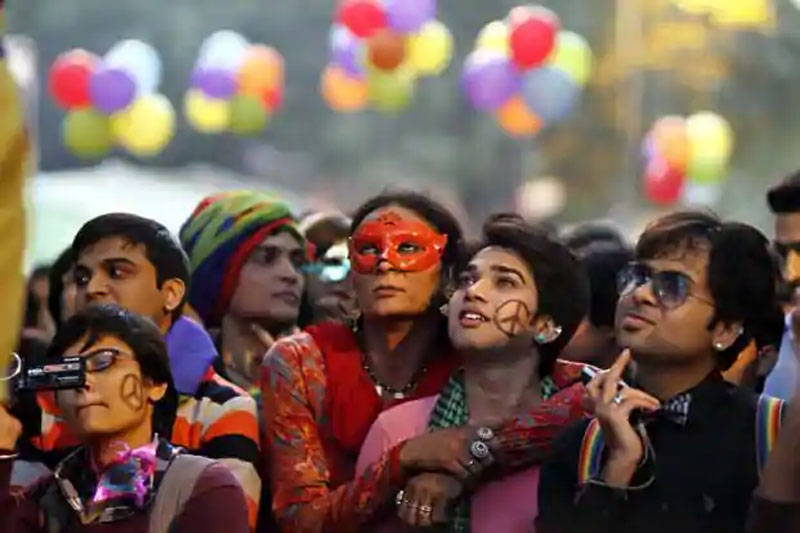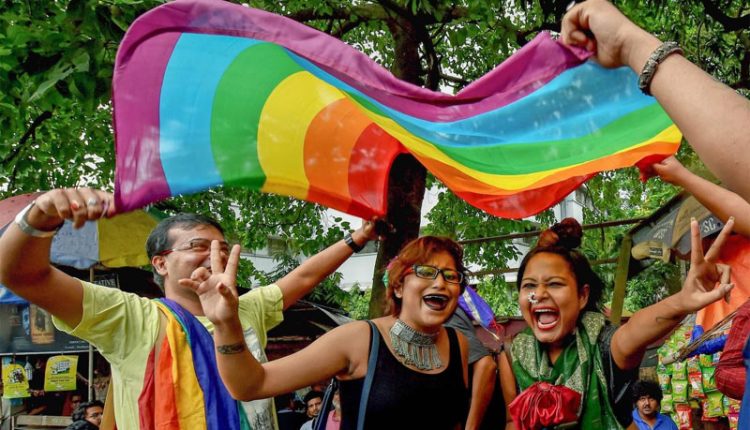Article by Dr Lopamudra Priyadarshini
It was the 6th of September, 2018, the day when the citizen of India celebrated another victory in the terms of human rights for LGBTQIA. The Supreme Court of India decriminalised the draconian section 377 of the Indian Penal Code on this day, which earlier meant having consensual intercourse with the same gender as a crime. People celebrated as the LGBTQIA community now had the right to be free from the shackles of this inhuman law. But was that even a real victory, unfortunately not. Beneath this decriminalisation, lies the ugly truth of the society, its norms and culture that still holds them back, even after 2 long years of passing the judgement.

Definition of Section 377 – Indian Penal Code
The IPC Section 377 stated, “Unnatural offences—Whoever voluntarily has carnal intercourse against the order of nature with any man, woman or animal, shall be punished with 1[imprisonment for life], or with imprisonment of either description for a term which may extend to ten years, and shall also be liable to fine.”
Post 6th September, it wasn’t a crime to express one’s preferences and live the way they wanted, but the celebrations didn’t last too long. It was the supreme court annulling a section and decriminalising 377, but the society was still the same, brutal, unwelcoming and discriminating. Its annulment was a sign of relief as the law believed that it wasn’t a criminal offence to be oneself, yet this wasn’t the holistic victory that the LGBTQIA community deserved. There still lies a long way ahead, before they can lead a normal and happy life, as the blatant inequality from society suffocates their existence.
India and LGBTQIA
Looking through the older chapters of Indian history, homosexuality was not a forbidden crime, rather an accepted part of the culture. Its existence can be traced as early as 1500 BC, in the Rig Vedas and the world known Kamasutra as well. The invasion of Aryans and British colonialism gradually suppressed homosexuality, followed by tortures, punishments, beating, physical and mental tortures, leading to the birth of homophobia in the society.
Today, even after over 70 years post the end of British reign over India, the society still is extremely homophobic and it is quite a horror for many firstly, accept their orientation and then to come out of the closet, if at all. The unfortunate truth of society has become so rigid and repelling towards homosexuality that individuals with such orientations are afraid to come out of the closet for the reason that their family might disown them, or in the worst case, kill them in the name of honour. All this fear for a major reason being what the society will say and consider, ruining the name of the family.
Considering an LGBTQIA individual from a lower or middle-class family, instead of expressing their orientation and feelings, they rather give in to the pressure and family’s will to be forced into an unwanted marriage. And in many cases, this goes up to the rich class as well, where they will be forced to marry for the sake of the name of their family.

Bitter Reality
While the decriminalisation of Section 377 was termed as a victory of love, the reality is quite different and unfortunate. Not only the society discriminates, but there is also no provision provided by the law for same sex marriages and any of the marital laws recognise same sex marriages. The Hindu Marriage Act, 1955 defines a Hindu wedding as between only a man and a woman, so a same-sex couple cannot fall under this category.
With such atrocity where a couple cannot get the stamp of marriage for their relation, along with the hatred and discrimination from the society, the individuals often get depressed, leading to unfortunate steps of suicide. A 2016 study shows the suicide rate among transgendered in India being bout 31 percent and over 50 percent of such have attempted suicide before their 20th birthday.
It is high time that society needs to understand the criticality of issues that the LGBTQIA community is dealing with, ranging from their acceptance to freedom to live their life in a way they want to and marry by choice. The lack of legal provisions in terms of marriage and inheritance needs to be checked upon through petitions, to reform the country’s law in a manner that it provides equal rights and opportunities to every citizen of the society. Along with the same, the creation of an all-inclusive society must be ensured, where co-existence is valued and celebrated with the aim of respecting the choices and preferences of all human beings. After all, every soul is a creation of the Almighty and when He never discriminated in creating, who are we to discriminate.

